RSPCA ‘alarmed’ as thousands of animals killed, injured in five truck crashes
Three truckies have been charged after five serious livestock crashes in the past few months on SA roads, with the RSPCA demanding drivers take more care.
Local
Don't miss out on the headlines from Local. Followed categories will be added to My News.
Thousands of animals have been killed on SA roads in the past six months in just five truck rollovers, with an “alarmed” RSPCA pleading with truckies to take more care.
As police charge three drivers and investigate a fourth crash, the RSPCA said the spate of rollovers and animal deaths showed a critical need for truck drivers to recognise their duty of care towards the welfare of animals they transport.
But the SA Road Transport Association has blasted as “insulting” the suggestion truck drivers don’t make animal welfare their top priority.
Thousands of cattle, sheep, and chickens were killed or euthanised after the five crashes between September last year and January, while surviving animals were traumatised, the RSPCA said.
“RSPCA South Australia is alarmed at the number of farm animals being injured and killed in truck rollovers and other road accidents,” RSPCA SA chief inspector Andrew Baker said.
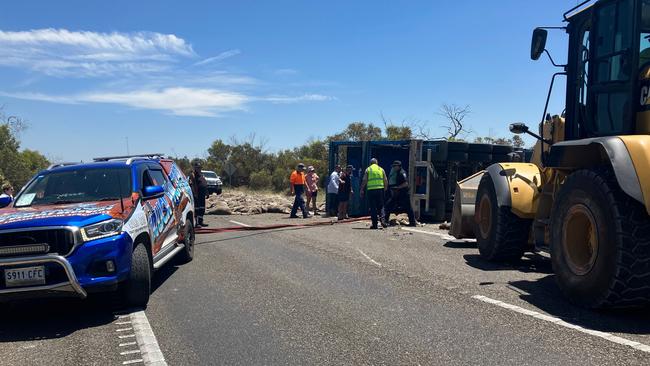
“These are not inanimate objects being trucked around, these are sentient animals whose welfare should be a top priority for these drivers as they negotiate our roads and traffic,” Mr Baker said.
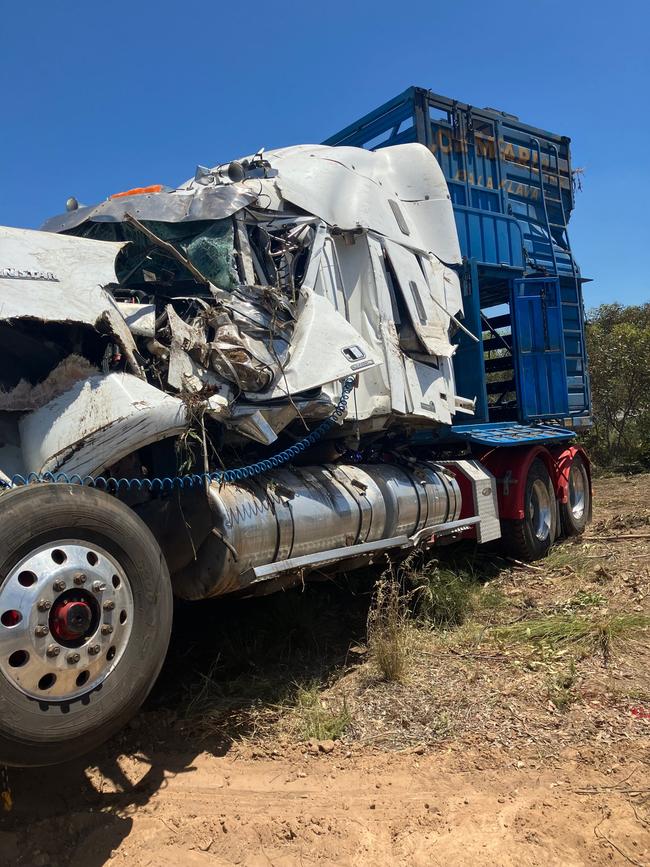
“Too often we hear reports of drivers taking corners too fast – even if the truck doesn’t tip, that kind of reckless driving is throwing those animals around and causing them distress and possible injuries,” Mr Baker said.
However, SARTA chief executive Steve Shearer said he found the RSPCA’s comments about the need for truck drivers to properly recognise their duty of care “insulting”.
He said the crashes represented a “minuscule fraction” of the total number of trucks on the road.
“It’s disappointing and insulting to the thousands of livestock transport drivers that the RSPCA suggests that the welfare of the animals is not the top priority when it is,” he said.
“It’s in the interests of the livestock transporters to ensure the livestock is delivered in good condition, because their business survival depends on it.”
Three truck drivers faced court last week over the crashes, while police are still investigating one of two crashes or rollovers that occurred last month.
In September, a B-double truck carrying cattle rolled on a Burra street, hit a house and took out a veranda, with its load of bulls left roaming the streets and others needing to be euthanased. A 43-year-old Clare Valley man was charged.
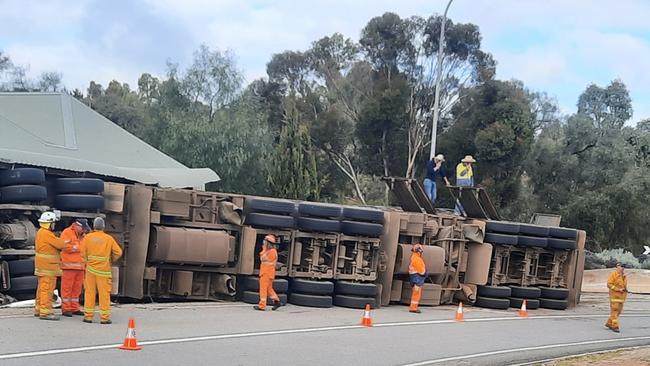
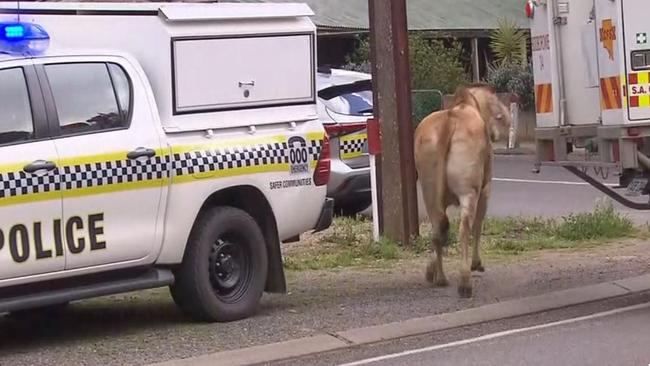
Then in November, a road train with two cattle trailers rolled on the Goyder Highway, with the 53-year-old truck driver allegedly under the influence of meth at the time.
In December, a 48-year-old Booboorowie man was charged after his truck – carrying 338 sheep – rolled in the state’s Mid-North.
A truck rollover on Dukes Highway at Culburra, which killed about 220 sheep last month is still under police investigation, while a driver was fined after about 1600 chickens died or were euthanised when a semi-trailer rolled near Murray Bridge on January 19.
Mr Baker said it was confronting for RSPCA inspectors after they were called in to clean up when truck rollovers.
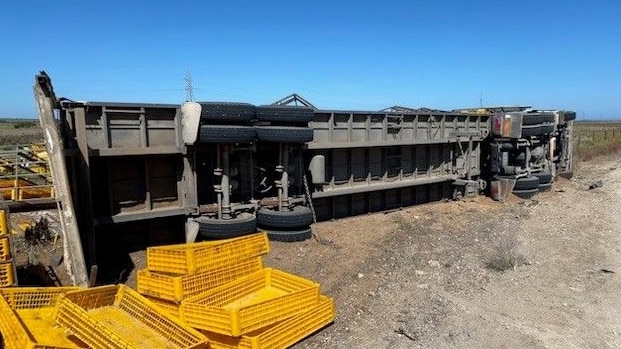
“The suffering of animals that are still alive and often trapped in the wreckage is horrendous,” he said.
“We are calling on employers to review their training of livestock truck drivers to ensure animals suffer as little stress as possible and arrive uninjured and calm at their destinations.”
Mr Shearer said livestock transport truckies already drove differently to other truck drivers to “specifically avoid rollovers”.
“They brake even more gently to minimise discomfort to the animals,” Mr Shearer said.
“Unfortunately sometimes, a few other road users do things in front of a truck that forces the truck driver to brake harder than they normally would with livestock on board.”
He said SARTA was committed to improving training in an effort to put an end to future livestock crashes.
“The industry has invested in a $500,000 truck simulator, which is progressively being rolled out with specific training simulations and we are working with the livestock transporters on this,” Mr Shearer said.
SAPOL declined to comment.





